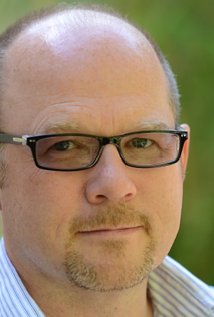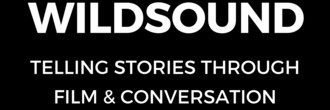It was a joy chatting with the screenwriter one of the the hit films of 2016 in “Eddie the Eagle”. Simon talks about the process from development to distribution of the film, plus shares a lot of insights on screenwriting . Enjoy!
 Interview with Simon Kelton
Interview with Simon Kelton
Matthew Toffolo: What motivated you to write the screenplay for Eddie the Eagle?
Simon Kelton: Like any Brit who loves the mountains I already knew a lot about Eddie’s magnificent adventures at the 1988 Winter Olympics in Calgary. After graduating from Oxford University, I had set up a ski company in Chamonix, France, to pursue my great passion for skiing and was so inspired by Eddie’s bravery and wild ambition that I ended up competing in the British Snowboarding Championships and World Extreme Snowboarding Championships in Alaska. Like Eddie I was over the moon just being able to watch my heroes doing what they did best. Actually being able to take part with them in competition was quite incredible so when Rupert Maconick, an English independent producer in LA, approached me with the idea for making Eddie’s story into a film I had absolutely no hesitation. I had already been working as a ski and snowboard journalist for the British press for several years at that point and I knew many of Eddie’s teammates. The fit seemed not just natural but perfect.
MT: What were your memories of the Winter Olympics in 1988? Did the Eddie the Eagle story jump out as something that would make a great film even then?
SK: Eddie had been so famous in 1988 and for at least five years afterwards that there really seemed no point in doing a movie about him. He was everywhere. After ten years it suddenly felt like a great idea and, of course, COOL RUNNINGS had also been a hit. In the end it felt like an advantage to be so far removed from the actual date of the Calgary Olympics because it allowed Dexter Fletcher, the director, and Matthew Vaughn, the producer, to make good story decisions and practical production choices without being too rigidly confined by the truth.
MT: When writing a screenplay based on a true story, there is a fine line to set up an overarching message/theme while also making sure you don’t go too far off the real story of what happened. How were you able to balance this in your screenplay?
SK: The trickiest issue with any true story adaptation is that life is usually too long and too complicated to fit neatly into a well-honed two hour movie. My job writing the original script and drafts was to try to take a huge amount of real detail and turn it into something manageable, fun and emotional. Having made enough choices to focus the story into 120 pages, you then have to work on the emotional heart of the piece. I liken the process to reducing a great demi-glace sauce. You add a ton of delicious ingredients and then boil it and boil it and boil it. When Sean Macaulay came on after me to continue the development process this is what he was doing, refining the story, making the relationships more dramatic, cutting down the number of characters, locations and incidents so that in the end Matthew Vaughn and Dexter Fletcher could make a film where the emotional through line was really powerful and clear.
PHOTO: “Eddie the Eagle” banner poster:

MT: How much did the film change from your original screenplay to the now final product?
SK: I think I am probably extremely lucky to be one of a small group of screenwriters who can watch their film years after first writing it and feel emotionally satiated by the result. Dexter managed to capture everything that was delightful, fun, moving, exciting and inspirational about Eddie’s journey. Although there were all sorts of changes here and there to the key characters and details, the positive feelings, the comedy, the drama, the social satire, the tone and the euphoric ending all felt totally true to my original vision, which was just fantastic.
MT: How many uncredited “ghost writing” assignments have you had?
SK: I have never done a ghost writing assignment and would have to be paid a lot to consider one. To me a large part of the joy of creating something is knowing that you did it for good or bad. I can imagine a scenario where you might want to take you name off a film, but I can’t imagine going into the process already having decided I didn’t want my name involved, unless, of course, it was simply a minor polish.
MT: You were also the Executive Producer of the documentary “Jeff Lowe’s Metanoia”, a film about the legendary climbs of the alpinist. From this to Eddie the Eagle, one would assume that you have a soft spot for mountains, adventure, and daring stunts?
SK: The mountains have always been as important a part of my life as the movies. I know the American West incredibly well and have skied and boarded almost everywhere. I have been to over 130 resorts around the world, climbed a lot of mountains, and done over 450 helidrops exploring the Chugach Range in Alaska where every run is quaintly referred to as an NFZ… a No Fall Zone. I am also an adventure traveller and have been on all sorts of somewhat crazy trips from swimming with pink dolphins and piranhas in the Amazon to reading the Dalai Lama’s palm in India. I have been followed by the Chinese secret police in Tibet and tailed by Soviet cops all the way from the Polish border to Moscow after the Wall came down. Whether it’s firing a AK-47 in the mountain passes of Afghanistan with a Mujahideen warrior or hanging with a notorious drug dealer the jungles of Colombia, if there is an exciting story to dig out I’m there.
MT: What film, besides the films you worked on, have you seen the most in your life?
SK: Right now, because I have an eight and a two-year-old, my most watches films are rapidly becoming KUNG FU PANDA, SHREK, DESPICABLE ME, THE LEGO MOVIE and any other wonderful animated movie that they find on iTunes. Prior to that it was probably James Bond.
MT: In one sentence, what makes a great screenwriter?
SK: A great screenwriter is obsessed by movies, is a voracious reader, worships the power of the written word and fully understands that only by polishing the rough carbon of a first draft with the endless fire of relentless rewrites will they ever produce a diamond truly worthy of someone else’s attention.
MT: When receiving notes from Producers and/or Production people on a screenplay you’ve written, what are you looking to receive to help you improve your story? And what are you not looking to receive?
SK: I believe great notes can come from anywhere. The difference between an observation made by a top studio executive and your local car mechanic may be nothing more than the professional’s ability to communicate the source of the itch that any reader might want to scratch. That means that I listen to the underlying substance of what any reader may bring up. It is usually their solutions that are less helpful than their observations because they are not as close to the underlying structure of the story. By driving your car almost anyone might be able to notice that the wheel is wobbling or the suspension is broken, but that certainly doesn’t mean they are qualified to fix it!
MT: What advice would you have for people who want to be a screenwriter?
SK: First, go online and find as many great screenplays to the movies you have loved and read them carefully. They are often even better than the movie itself. Read classics, read genre, read Oscar winning scripts and the very latest releases. If you then discover you love reading them and feel both a burning desire to give it a go as well as a deep-seated belief that you have visions in your mind that you must share with the world then give it a try. Do not be falsely attracted by any perceived glamour or a quick and easy road to riches. There is no industry in the world more competitive, more confusing, more seductive, and more full of brilliant talent that has yet to find its moment in the sun. Be wary, be strong, be realistic, and then be bold.
_____
Interviewer Matthew Toffolo is currently the CEO of the WILDsound FEEDBACK Film & Writing Festival. The festival that showcases 10-20 screenplay and story readings performed by professional actors every month. And the FEEDBACK Monthly Festival held in downtown Toronto on the last Thursday of every single month. Go to www.wildsound.ca for more information and to submit your work to the festival.


Reblogged this on WILDsound Writing and Film Festival Review.
LikeLike
Reblogged this on Festival Reviews.
LikeLike
Reblogged this on WILDsound Writing and Film Festival Review.
LikeLike
Reblogged this on WILDsound Writing and Film Festival Review.
LikeLike
Reblogged this on WILDsound Writing and Film Festival Review.
LikeLike
Reblogged this on WILDsound Writing and Film Festival Review.
LikeLike
Reblogged this on WILDsound Writing and Film Festival Review.
LikeLike
Reblogged this on POETRY FESTIVAL. Submit to site for FREE. Submit for actor performance. Submit poem to be made into film. .
LikeLike